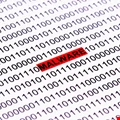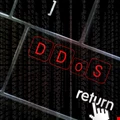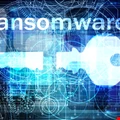Infosecurity News

Watch Out For Sneaky Cyber Attacks, M&A Firms Warned
FireEye claims attackers are out to compromise businesses involved in acquisitions for IP gain or access to sensitive info on the deal.

Cyber-challenge for Kids Slated for DEF CON
Kids as young as five are invited to test their social engineering skills.

Mobile Trojan Svpeng Implements Ransomware
The Android-targeting banking bug is morphing rapidly.
Plan Now For Europe’s NIS Cyber Security Directive, Firms Warned
Experts urge EEMA conference attendees to get ready, even though requirements are vague.

TweetDeck Taken Offline After XSS Flaw Hits Users
Problems seem to have stemmed from a 19-year-old Austrian who wanted to tweet a heart symbol.

Zeus Used to Mastermind DDoS and Attacks on Cloud Apps
Prolexic warns that infamous crimeware kit is being customized for use in variety of scenarios.

ICS-CERT: Federal Highway Signs Are Easily Hackable
Expect DUI warnings to be replaced with zombie alerts.

In Snowden’s Wake, Calls for Balkanized Internet Present more Harm than Good
Drew Amorosi recently caught up with Steve Durbin at Infosecurity Europe in London, where the ISF’s global VP took a skeptical view on political leaders who have called for regional control of the internet in the aftermath of NSA surveillance disclosures.

Wily ‘Clandestine Fox’ Changes Attack Tools and Vectors to Snare Victims
FireEye warns group which exploited XP zero day is now using new malware and social media to trick employees.

Smart TVs Represent a Massive and Vulnerable Attack Surface
As connected TVs become mainstream, a flaw in the HbbTV standard threatens widespread chaos.

Second Chinese PLA Hacking Unit Unmasked in ‘Putter Panda’ Report
CrowdStrike intelligence alleges Unit 61486 hacked satellite firms since at least 2007

Scammers Trick Thousands of Twitter Users with ‘Follower’ Bait
The Twitterverse falls for the promise of more followers.
Malvertising and Cryptowall Mark the Appearance of the RIG Exploit Kit
Since first appearing in April, RIG traffic volume continues to rise
IEEE CEO Loeb Named ISACA CEO
Former IEEE chief will bring a focus on expanding the central strategic role of the cybersecurity function.

DARPA Announces First Teams and DEF CON Colocation for Cyber Grand Challenge
The two-year competition to develop self-healing security is well on its way.

How to Integrate Security into Core Business Processes
The Information Security Forum explains how the CISO can play a key role in central business strategy.

Experts Discover File-Encrypting Android Ransomware
Simplocker is not as sophisticated as Cryptolocker, but it could still imperil all your SD card files

(ISC)² Announces GISLA Award Winners
The non-profit-driven awards showcase excellence in federal government information security.

American Express Warns California Residents of Data Breach
Approximately 76,000 victims were part of the Anonymous protest hack in March.

Pirate Bay Co-founder Arrested in Sweden
Sunde will face prison after two years on the lam.



